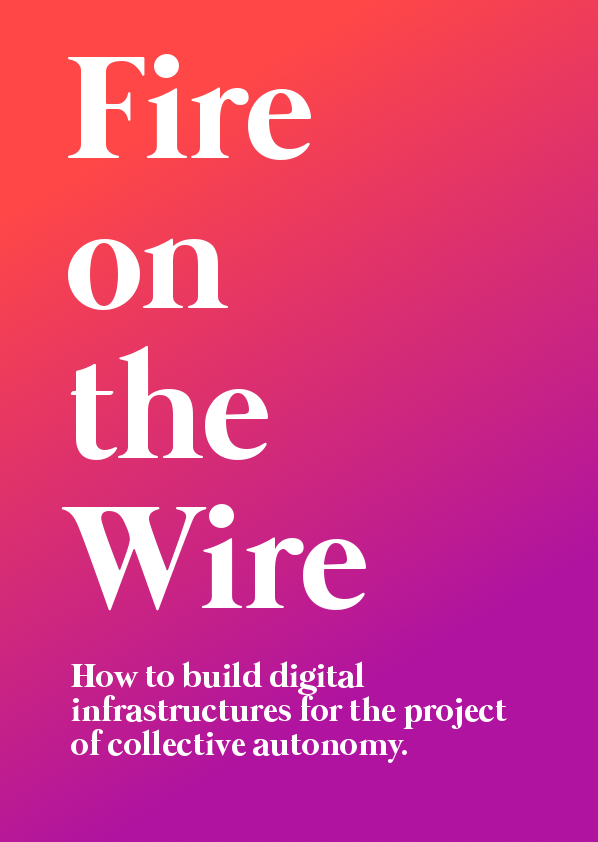Fire on the Wire (FotW) is a monthly(-ish) periodcal in the format of serial guides about building autonomous digital infrastructures, as well as offensive and defensive digital tactics, techniques and procedures ("TTPs"). The guides are distilled from the work of several local New York City and national United States-based anarcho-autonomist groups (with the intention of making ourselves available to international groups as well through localization initiatives), including the Anarcho-Tech NYC Collective, the Tech Autonomists, and select others who more-or-less share a common liberatory vision.
The goals of FotW are centered around practical education to give more attention to tools that are often underappreciated, ignored, or never make their way to radical circles because of the knowledge silo of Tech Industry. It is not the goal of FotW to "teach you to code," get you a tech job, or even to teach you everything there is to know about computers (a daunting task even for the most experienced technologist).
References to places where these writings can be found online are proliferated throughout the issues.
To utilize anarchoautonomist methods to educate motivated individuals and save them the hours they would otherwise spend searching alone.
To make more accessible high-quality information and comprehensive guides on building autonomous digital infrastructure, so that radicals in particular can stop confusing autonomy with proprietary services, like SquareSpace or Google Groups.
IN SO DOING,
To break apart technophobia by empowering the ones who thought they could never be empowered due to trauma inflicted by abusive tech scenes or advanced by fear mongers who don't actually know what computers are.
To speak directly to the experience of marginalized people who do not feel comfortable in most "Tech Spaces."
To undermine the idea that the meme war is the most pertinent digital battle by giving motivated radical communities more powerful tools.
To give governments something to fear about which they can do nothing.
Your contributions are heartily encouraged. :) Fire on the Wire editors welcome any and all suggestions, whether they be as small as fixing a typo or as involved as writing an entire issue. We also encourage you to copy and redistribute these texts in whatever manner you prefer, in accordance with our license.
See also CONTRIBUTING.md.
A collection of small zines educating radicals on constructing autonomous digital infrastructure as well as offensive and defensive digital techniques.
- Print guides from AnarchoTech, Tech Autonomy.
- Write overarching contextualizing texts.
The overarching process and structure taken up by FotW is to handle three primary stages of development, each of which are explored over the course of several issues per topic. The three primary stages of development are:
This process progresses from starting with the least amount of technical knowledge, which can be implemented immediately, to the sector that requires the most knowledge, which you will get to eventually. The other issues in this series will be addendum issues tackling other issues relevant to larger goals.
- Design, revisited
- "A quiet, niche war"
- There is a war going on between the people who believe design should simplify technological tools to the point where everything is a shiny button that you click without understanding what is happening, and people who believe design should be beautiful while facilitating genuine education. It is sometimes on the surface hard to distinguish between these people and these sides. If it were not already obvious, this book firmly and mercilessly takes the side of the latter.
This work is licensed under a Creative Commons Attribution-NonCommercial 4.0 International License. (What does this mean?)
